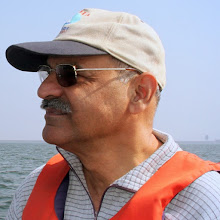| DEFENCE: India Today |
| Soldiers of Misfortune | |||
|
Unnithan | |||
| June 26, 2010 | |||
In the Kargil War of 1999, the battle for Tololing will be remembered for its sheer ferocity and for delivering the Indian Army one of its most important victories. Havildar Digendra Kumar, a burly commando from the Rajputana Regiment and part of a 10-man team led by Major Vivek Gupta, climbed the 15,000-ft-high feature and engaged in furious close-quarter combat with soldiers of the Pakistani Northern Light Infantry on June 12.
At dawn, Digendra, his body riddled with five bullets, was the sole survivor of the assault team th at had conquered the icy heights. He was decorated with a Maha Vir Chakra, the nation's second highest gallantry award. Nearly 12 years later, Digendra's battle is still on. With the government. He was denied a disability pension by the army on the grounds that he had voluntarily retired in 2005. Digendra didn't get any of the benefits given to other Kargil war heroes, again because he was not given a disability pension. In March, the Jaipur bench of the Armed Forces Tribunal recommended that he should be given a disability pension, but even after three months, he is yet to hear from the Principal Controller of Defence Accounts (Pensions) (PCDA), the ultimate authority that disburses pensions. "It hurts when you get nothing for fighting for your motherland, but what can one do? I will get my pension when the Government decides," says Digendra, visibly resigned to a long wait. There are hundreds of soldiers like him, who may not be as heavily decorated but have similar stories to tell. For them, it is the endless rounds of dusty government offices, courtrooms or poignant attempts at drawing attention to their cause-veterans like Captain Chanan Singh Sidhu, who lost his right arm in 1970, burnt their medals and prosthetic limbs at India Gate three years ago.
"It is sad. At one stage, nearly 80 per cent of military cases before the courts were on account of disability pension," says General V.P. Malik (retired). Of the 7,995 army-related cases pending before the Supreme Court and various high courts, 3,531 petitions, or nearly 44 per cent, were pension related. Most of these cases have now been transferred to the Armed Forces Tribunals (AFT) set up in 2009 to decide military disputes. An AFT member says over half the pension-related cases were about disability pension, the issue of whether or not a certain injury was caused by military service. To start with, the soldiers have to plead their case, an insult to heroes. Typically, babudom has created a maze of clearances. Disability is defined by doctors, army officers and accountants, who then determine the quantum of disability pension. Bullet injuries are not difficult to cite, but other ailments like hypertension, which could be a result of numerous postings, have to be argued. All of which consume time and effort and result in trauma. The percentage of the disability and whether it is attributable to or aggravated by service is assessed by Invaliding or Release Medical Boards (IMBs/RMBs) which examine retiring soldiers before their discharge. The boards' conclusions are sent to the PCDA (Pensions) based in es. Terming Havildar Mohar Singh's injuries as constitutional in nature, the PCDA rejected his claim for grant of disability pension. |
Disabled and totally dependent on his family members after being involved in a road accident in Arunachal Pradesh eight years ago, Mohar was brought into court on a stretcher. The shocked AFT bench not only restored his disability pension but also levied a Rs 1-lakh fine on the three members of an armed forces board that had declared him ineligible for disability pension. The problem?
|
|
"Rules are
interpreted in a restrictive and literal manner rather than a liberal and beneficial manner as indicated by those very rules," says Navdeep Singh, a Chandigarh-based lawyer and defence counsel in several such cases.
In 2005, to make the system more responsive towards the disabled soldiers, the medical boards, and not the PCDA, were given the final say in deciding injuries. Veterans say the move merely replaced the bureaucracy of the PCDA with that of the Defence Ministry and the army. They also argue that there is a different set of rules when it comes to such cases of senior officers.
Last year, 13 officers of the rank of major-general and above applied for and received disability pension. "Senior officers manipulate the system to get disability pension while officers like me are sent out because we cannot continue to serve because of injuries," says Captain M.P. Singh
.
| Mohar Singh (45)
 RANK: Havildar |
Those who fight with spirit have to learn to live with the letter of the law. Even when the high court grants veterans their disability pensions, the government challenges the cases in the Supreme Court, prolonging the agony of the litigants.
Captain Sidhu, for instance, won the case in the
"If this is the manner in which the army personnel are treated, it can only be said that it is extremely unfortunate. The army personnel are bravely defending the country, even at the cost of their lives and we feel that they should be treated in a better and more humane manner by governmental authorities, particularly, in respect of their emoluments, pension and other benefits," the bench said.
Strangely, these sentiments are not shared by army authorities or by the ministry. "The military is going as per the policy laid down in the Army Act. We feel that the procedure is absolutely right," says a senior army official.
The establishment of the AFT with a principal bench in
"It is like adding insult to injury," says Colonel S.B. Singh (retired) a Jaipur-based lawyer for Digendra and Mohar. Several other veterans in the
Speedy justice, it seems, is a far cry in the Defence Ministry.
http://indiatoday.intoday.in/site/Story/103039/soldiers-of-misfortune.html?page=0










No comments:
Post a Comment